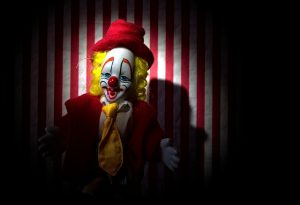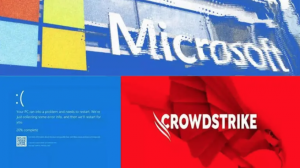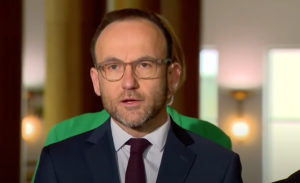Tragedy & Hope 101 With Joseph plummer

Podcast: Play in new window | Download
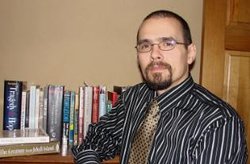 Joe Plummer is a civic-minded writer and entrepreneur who has written on topics ranging from alcohol and drug addiction (HowToStopDrinking.org) to achieving personal and financial success (The 1-Hour Guide to Successful Thinking); from government criminality and fraud (StopTheLie.com), to the debt-based Federal Reserve System (Dishonest Money: Financing the Road to Ruin). In April 2012 he published his first novel (Leaving the Illusion), and in April of 2014 he published a condensed version of Carroll Quigley’s Tragedy and Hope (Tragedy and Hope 101).
Joe Plummer is a civic-minded writer and entrepreneur who has written on topics ranging from alcohol and drug addiction (HowToStopDrinking.org) to achieving personal and financial success (The 1-Hour Guide to Successful Thinking); from government criminality and fraud (StopTheLie.com), to the debt-based Federal Reserve System (Dishonest Money: Financing the Road to Ruin). In April 2012 he published his first novel (Leaving the Illusion), and in April of 2014 he published a condensed version of Carroll Quigley’s Tragedy and Hope (Tragedy and Hope 101).
Introduction
by G. Edward Griffin
If you have ever watched an illusionist perform up-close magic, you know the power of misdirection and sleight-of-hand. Even in a room full of suspicious and attentive observers, the illusionist can fool them all. By exploiting known weaknesses in the human mind and employing his tools of the trade, he will deceive the crowd whether it wants to be deceived or not.
Imagine what an equally talented “network” of political illusionists can accomplish. Performing before an audience of mostly trusting and casual observers, exploiting known weaknesses in the human mind, and employing their tools of the trade, they, too, will deceive the crowd whether it wants to be deceived or not.
Having spent nearly sixty years of my life researching and writing about the illusionists who control our world, I can say without reservation that you are about to learn some of their closest-held secrets. Joe has done an outstanding job of weeding through Carroll Quigley’s book, Tragedy & Hope. He has captured the essence of what Quigley referred to as “the Network” and made this important information accessible to the average person who simply doesn’t have time to read a 1,300-page history book. Even for those who intend to read the entire volume, Joe has created an introduction and study guide that will serve the serious student well.
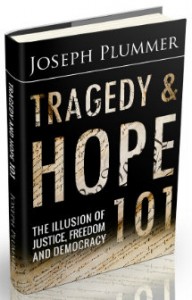 Knowledge of who Carroll Quigley was and the deceptions that he revealed is essential for understanding the real world of today. His close relationship with the Network and his approval of its aims made it possible to provide an insider’s analysis of the minds and methods of the global elite. Without this knowledge, the actions of those who dominate the U.S. government and the Western world do not make sense. With it, everything falls into place.
Knowledge of who Carroll Quigley was and the deceptions that he revealed is essential for understanding the real world of today. His close relationship with the Network and his approval of its aims made it possible to provide an insider’s analysis of the minds and methods of the global elite. Without this knowledge, the actions of those who dominate the U.S. government and the Western world do not make sense. With it, everything falls into place.
Be forewarned. The journey you are about to begin is not for the faint hearted. If you are comfortable with the illusions that currently pass for political reality, this book is not for you because, once you discover how the deceivers perform their magic, the comfort of ignorance is no longer possible. Once the bell is rung, it cannot be unrung.
A Book like No Other
If you decide to read Tragedy and Hope, the first thing you’re likely to notice is its size. At over thirteen hundred pages, approximately six hundred thousand words, and weighing in around five pounds, it’s safe to say that it wasn’t written for the casual reader. Nor was it written like a novel, bursting with scandalous and interesting conspiratorial tidbits on every page. Rather, as one would expect from an Ivy League historian, it is a long and often tedious read of which 95 percent consists of basic economic, political, and diplomatic history. However, within the other 5 percent, you’ll find some truly astonishing admissions about the existence, nature, and effectiveness of covert power.
In both Tragedy and Hope and The Anglo-American Establishment, Quigley reveals the existence of a secret network that formed to bring “all the habitable portions of the world” under its control.[if !supportFootnotes][4][endif]
I know of the operations of this network because I have studied it for twenty years and was permitted for two years, in the early 1960’s, to examine its papers and secret records. I have no aversion to it or to most of its aims and have, for much of my life, been close to it and to many of its instruments. I have objected, both in the past and recently, to a few of its policies…but in general my chief difference of opinion is that it wishes to remain unknown, and I believe its role in history is significant enough to be known.[if !supportFootnotes][5][endif]
Quigley informs us that this wealthy “Anglophile network” cooperates with any group that can help it achieve its goal.[if !supportFootnotes][6][endif] (This includes Communists, which, on the surface, would seem to be the sworn enemy of super-wealthy capitalist conspirators.) He chronicles how the Network formed in the late 1800s in England and immediately began creating front groups. By 1919, it had formed the Royal Institute of International Affairs (also known as Chatham House), and it went on to create other extremely powerful institutes within “the chief British dominions and in the United States.”[if !supportFootnotes][7][endif] Hiding behind these front groups, the Network began secretly exercising its power.
In the United States the main institute was named the Council on Foreign Relations (CFR), which Quigley described as “a front for J. P. Morgan and company.”[if !supportFootnotes][8][endif] Before long, the Network expanded its operations; spreading like cancer into our universities, media, and especially government “foreign policy.”
On this basis, which was originally financial and goes back to George Peabody,[if !supportFootnotes][9][endif] there grew up in the twentieth century a power structure between London and New York which penetrated deeply into university life, the press, and the practice of foreign policy. In England, the center was the Round Table Group, while in the United States it was J. P. Morgan and Company or its local branches in Boston, Philadelphia, and Cleveland.
The American branch of this “English Establishment” exerted much of its influence through five American newspapers (The New York Times, New York Herald Tribune, Christian Science Monitor, the Washington Post, and the lamented Boston Evening Transcript). In fact, the editor of the Christian Science Monitor was the chief American correspondent (anonymously)…It might be mentioned that the existence of this Wall Street, Anglo-American axis is quite obvious once it is pointed out.[if !supportFootnotes][10][endif]
If the idea of powerful Wall Street insiders joining a secret foreign network to establish dominion over all “habitable portions of the world” and successfully penetrating “into university life, the press, and the practice of foreign policy” sounds like something you should have heard about, you’re right. But the secret to why you haven’t is contained in the story itself. (The successful “penetration” of universities, the press, and the government has proven quite useful to those who wish “to remain unknown.”)
Get Tragedy & Hope 101 Free Ebook Here: http://joeplummer.com/tragedy-and-hope-made-easy.html
From Amazon Books: http://www.amazon.com/Joseph-Plummer/e/B0034R0998
Carroll Quigley Tragedy & Hope: http://www.carrollquigley.net/pdf/Tragedy_and_Hope.pdf



